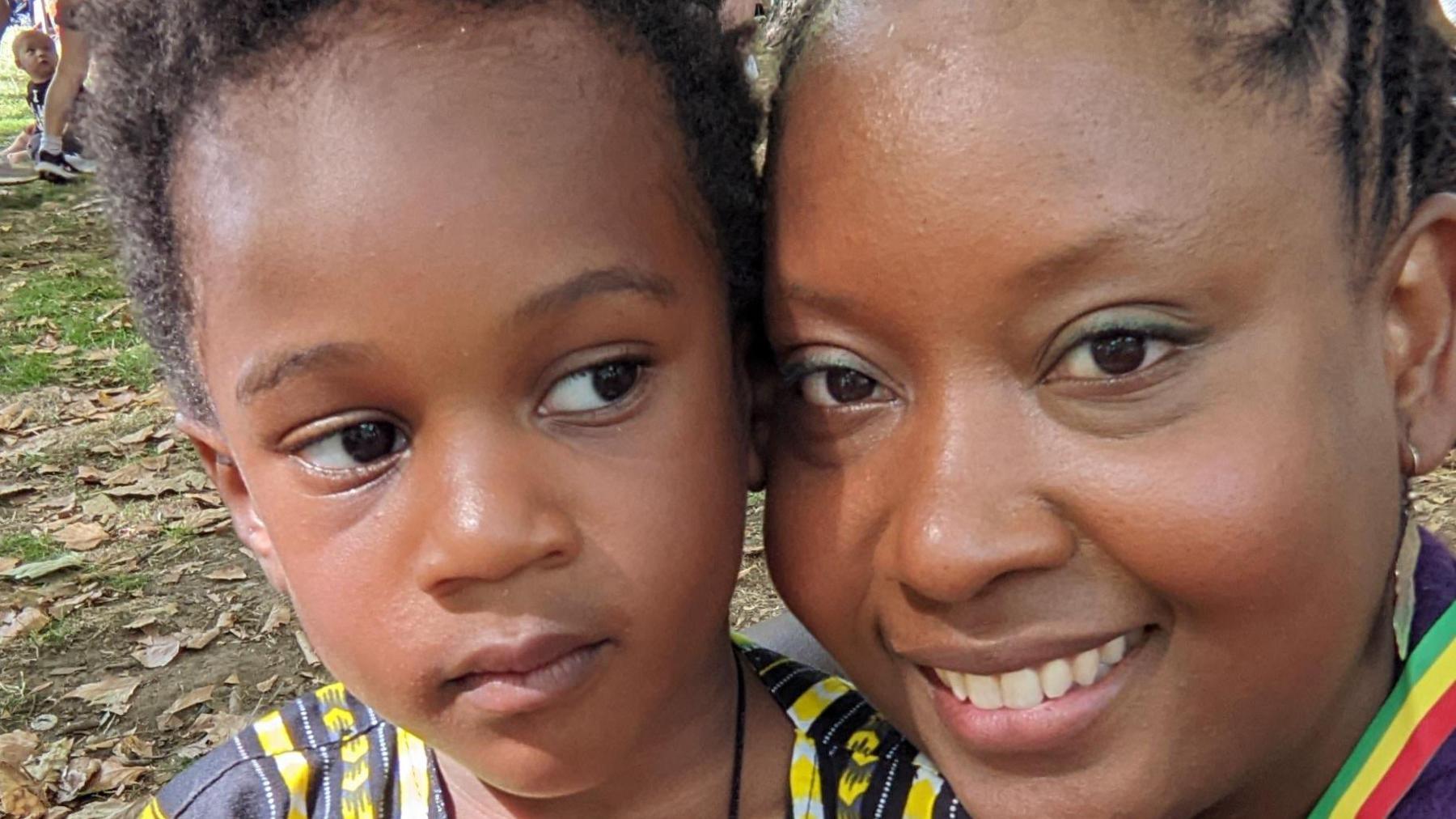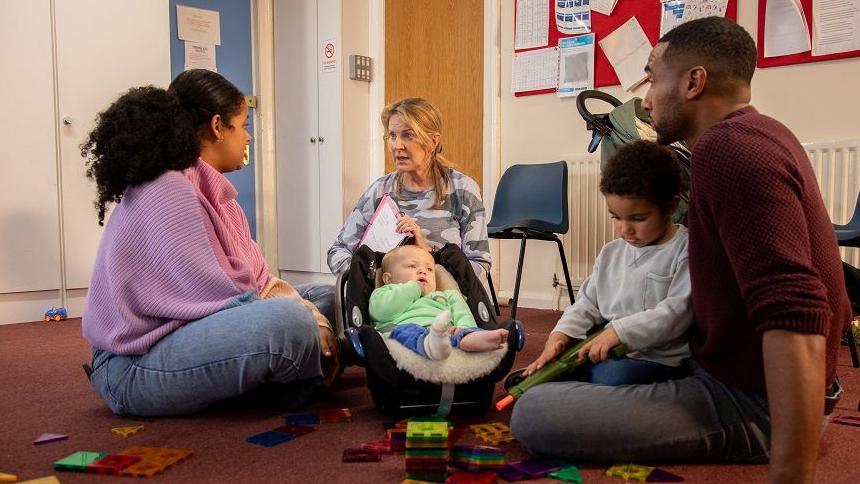'I may have to give up my job to care for my son'

Bisi Daniels says she pays up to £1,500 a month on specialist babysitters for her son Shaka, who is autistic
- Published
Bisi Daniels, a north London mother, is concerned she may have to give up her job to look after her son.
Shaka, 5, is autistic, has global developmental delay and is non-verbal.
It is an ongoing battle for Ms Daniels to get things in place for Shaka, whose school is not meeting his needs - and now she is contemplating leaving her job in insurance so she can home school him.
"I deal with stressful situations all the time, but the battle to get things in place for my son is much more stressful. It sucks the life out of me".
Ms Daniels, who is a single parent, said Shaka can't use after-school clubs because he has a high degree of need.
She is currently paying for a specialist babysitter to drop him off at school in the morning and pick him up in the afternoons four days a week, so she can maintain an office job.
Ms Daniels, from Camden, said this costs her between £1,000 and £1,500 a month.
"Specialist babysitters are not cheap and we, as parents, pay premium to ensure we can work and support our families."
She said breakfast and after school clubs would help with this cost, but they are not staffed for Shaka's needs.
She said she has been trying to move her son into a more suitable school since November 2023.
"I can't afford the thousands of pounds in legal fees that it will require to get my son the help he needs at school.
"I’m having to contemplate home schooling my son and leaving work.
"It's a bit of a desperate situation."
'Impossible financial choices'
On Wednesday, Ms Daniels will speak in parliament about new research from disability charity Contact.
A survey of 4,262 families with disabled children in the UK found 62% of parent carers had given up work or reduced their hours. On average, they lost £21,174 from their family income.
The charity also found that 32% of parent carers have gone without food for themselves, 50% of families have got into debt or borrowed money in the past 12 months to pay for basics.
A third of disabled children have gone without therapies and nearly a quarter without specialist equipment and home adaptations in the past year.
Contact said that on average, parents are paying an extra £322 a month, or £3,864 a year because of their child’s condition.
Anna Bird, chief executive of the charity, said: “Disabled children live in some of the poorest households in the UK.
"Many are faced with impossible financial choices every day – whether they can afford to attend their child’s hospital appointment or whether they need to turn off the freezer to save electricity for their child’s oxygen concentrator.
"The government needs a child poverty strategy that recognizes the unique costs coupled with employment challenges that families with disabled children experience.
"We need to see a strategy with clear and ambitious goals to improve their household incomes and reduce essential costs."
A government spokesperson said its ministerial taskforce was developing an "ambitious strategy" to give all children the best start in life.
"We’re rolling out free breakfast clubs in all primary schools in England, supporting 700,000 of the poorest families with children by introducing a fair repayment rate on universal credit deductions, and we continue to support disabled children through the disability living allowance."
Listen to the best of BBC Radio London on Sounds and follow BBC London on Facebook, external, X, external and Instagram, external. Send your story ideas to hello.bbclondon@bbc.co.uk, external
Related topics
- Published3 September 2024
